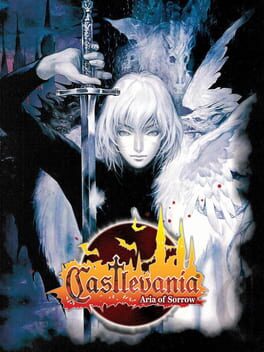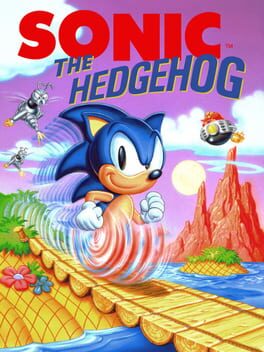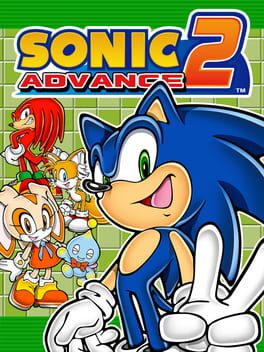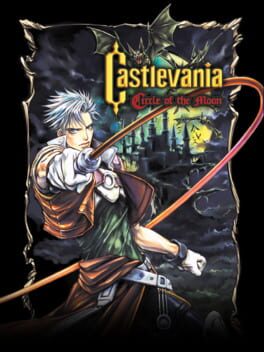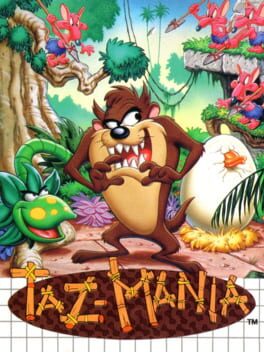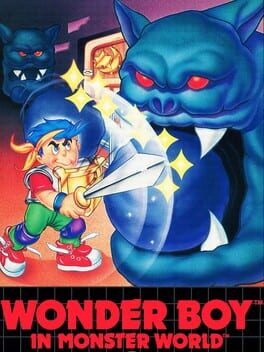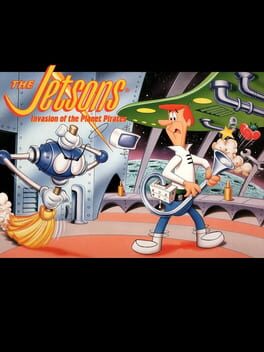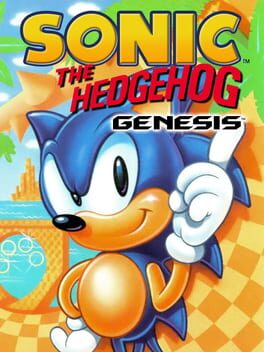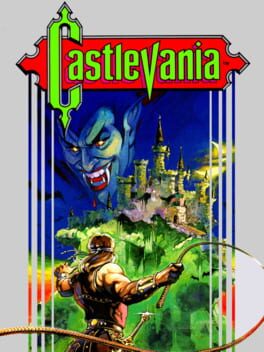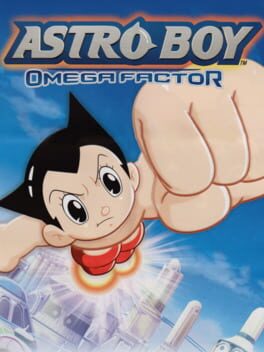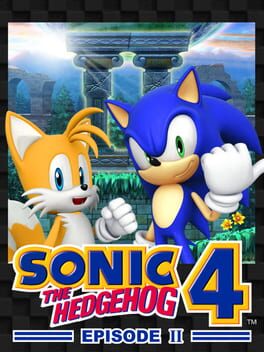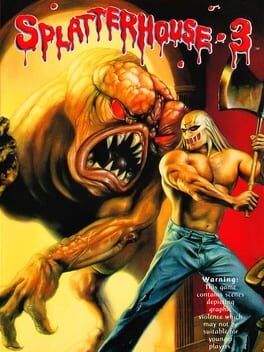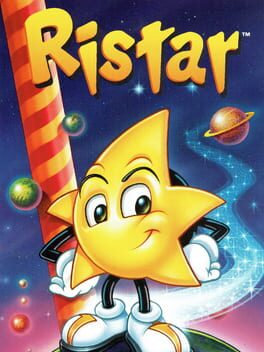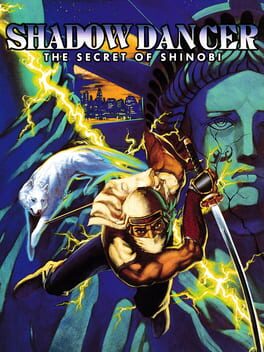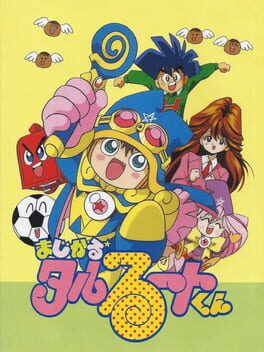Devyatto
Finally, we have the last one in the GBA trilogy, Aria of Sorrow, and you have no idea how excited I was to play this one. People often say it's the second-best, if not the single-best, of the Metroidvania titles in the franchise, and I don't agree with that statement in the slightest.
It's just as if Circle of the Moon and Harmony of Dissonance merged into one, having both the best and the worst of each one:
The story is even more bland than the two previous ones. Remember when people made fun of Jason in Friday the 13th because he went to space? In this one, Dracula goes to Japan. TO MT MF FUJI OF ALL PLACES.
There are also a lot of characters involved this time, but only two of them are really crucial to the plot, the others are really just there for decoration.
You have a nice variety of weapons this time, like axes, swords, whips, and whatnot, but none of them impact the game in any meaningful way.
Traveling through the Castle is...tiresome at this point, it feels like there's nothing new to see anymore—no cool secret passageways, no places where you are not supposed to go, no new ideas; it's just Circle of the Moon all over again.
The card system is back, this time better implemented and with more room for experimentation, but that just means more mindless grinding. You even need to get every single card (this time called souls) to reach the true ending, and it's just not worth it. The last boss battle is cool and all, but it's not mind-blowing or anything.
Music is the best of the three and worth a listen; the GBA soundchip was capable of more than people think, and this soundtrack is proof of that.
Bosses drag on forever; they are just bullet... Uh, whip sponges. I think years from now I'll only remember the giant boss in the wall for the initial shock factor and the last true boss because of its crazy visual design.
Other than that, I really don't have much to say about this one. I'm just very underwhelmed; I expected something timeless, something that could rival Symphony of the Night, Hollow Knight, and Metroid Dread, and it's just not.
I feel like people make a big deal out of this one, and it just does not deliver.
Good game, but not on the list of the best Metroidvania titles of all time.
It's just as if Circle of the Moon and Harmony of Dissonance merged into one, having both the best and the worst of each one:
The story is even more bland than the two previous ones. Remember when people made fun of Jason in Friday the 13th because he went to space? In this one, Dracula goes to Japan. TO MT MF FUJI OF ALL PLACES.
There are also a lot of characters involved this time, but only two of them are really crucial to the plot, the others are really just there for decoration.
You have a nice variety of weapons this time, like axes, swords, whips, and whatnot, but none of them impact the game in any meaningful way.
Traveling through the Castle is...tiresome at this point, it feels like there's nothing new to see anymore—no cool secret passageways, no places where you are not supposed to go, no new ideas; it's just Circle of the Moon all over again.
The card system is back, this time better implemented and with more room for experimentation, but that just means more mindless grinding. You even need to get every single card (this time called souls) to reach the true ending, and it's just not worth it. The last boss battle is cool and all, but it's not mind-blowing or anything.
Music is the best of the three and worth a listen; the GBA soundchip was capable of more than people think, and this soundtrack is proof of that.
Bosses drag on forever; they are just bullet... Uh, whip sponges. I think years from now I'll only remember the giant boss in the wall for the initial shock factor and the last true boss because of its crazy visual design.
Other than that, I really don't have much to say about this one. I'm just very underwhelmed; I expected something timeless, something that could rival Symphony of the Night, Hollow Knight, and Metroid Dread, and it's just not.
I feel like people make a big deal out of this one, and it just does not deliver.
Good game, but not on the list of the best Metroidvania titles of all time.
1991
2002
Very conflicted about this one. I personally would consider it better and definitely more original than the first one (which was pretty much based on a Sonic 3&K style) but there's some really odd design choices that stop me from giving it a higher ranking.
The boost formula makes for a more fast paced, intense gameplay and encourages you to replay the stages in order to completely blast through them, once you've learned them.
The new moveset for every character is also a great addition, Sonic's in particular being the one that rewards high skill gameplay and reaction timing.
On the downside, the game is heavily based on trial and error with a bunch of bottomless pits that are an instant kill and some really cheap boss battles. Exploration also suffers a lot, backtracking is usually near impossible depending on which character you're using and forces you to either die or replay the whole stage again to have another try in order to grab all the special rings which are required to enter the special zones and get all the chaos emeralds.
Still, i'd definitely give it a try i you haven't yet, it's truly one of a kind, i just wished it was a bit more polished.
Oh and the music slaps, as always.
The boost formula makes for a more fast paced, intense gameplay and encourages you to replay the stages in order to completely blast through them, once you've learned them.
The new moveset for every character is also a great addition, Sonic's in particular being the one that rewards high skill gameplay and reaction timing.
On the downside, the game is heavily based on trial and error with a bunch of bottomless pits that are an instant kill and some really cheap boss battles. Exploration also suffers a lot, backtracking is usually near impossible depending on which character you're using and forces you to either die or replay the whole stage again to have another try in order to grab all the special rings which are required to enter the special zones and get all the chaos emeralds.
Still, i'd definitely give it a try i you haven't yet, it's truly one of a kind, i just wished it was a bit more polished.
Oh and the music slaps, as always.
I'd like to write my thoughts on the whole Castlevania GBA trilogy before I forget, starting with the first one: Circle of the Moon
Right from the start, you can tell this is going to be a Metroidvania title, following the success of Symphony of the Night; however, the controls feel nothing like in that game. They are very clunky, to the point where you feel like you are playing one of the NES titles instead; even your melee attack is just the classic one-directional forward whip one. You do have a pretty sick move if you hold down the attack button, which makes your whip spin around and block enemy attacks, but you'll almost never find use for it. The Castle design feels very uninspired too, just inferior renditions of what Symphony of the Night showed us and sometimes even less than that.
There's also a card system going on where you can basically use various enemy attacks (called spells) to enhance your stats or add an element such as fire or ice to your whip to inflict various status effects on your enemies, but the only way to get the cards is by pure luck and grinding, and it just makes the gameplay more redundant than it needs to be.
Bosses are few and far between; however, I'd call most of them memorable, especially the Dragon Zombie one, which makes use of all the chore mechanics and really puts to the test your understanding of them. Cool stuff.
There's a plot going on, and it's nothing really special—just your typical, even cliché story about two pupils trying to make their master proud and one of them getting jealous at you because you are the favorite and... It's not bad, but you can see where the story is going from a mile away.
Music is also really forgettable; aside from some of the boss tracks, having played this game only a month ago, I really can't remember any of them. Some people blame the inferior GBA soundchip for this, but I've listened to better OSTs on a Master System, so I don't think that's the issue here; the music is just a very generic haunted Castle theme.
I'd say give this one a pass unless you are really interested in going through the whole trilogy.
There's nothing interesting to see here, folks; let's keep moving on.
Right from the start, you can tell this is going to be a Metroidvania title, following the success of Symphony of the Night; however, the controls feel nothing like in that game. They are very clunky, to the point where you feel like you are playing one of the NES titles instead; even your melee attack is just the classic one-directional forward whip one. You do have a pretty sick move if you hold down the attack button, which makes your whip spin around and block enemy attacks, but you'll almost never find use for it. The Castle design feels very uninspired too, just inferior renditions of what Symphony of the Night showed us and sometimes even less than that.
There's also a card system going on where you can basically use various enemy attacks (called spells) to enhance your stats or add an element such as fire or ice to your whip to inflict various status effects on your enemies, but the only way to get the cards is by pure luck and grinding, and it just makes the gameplay more redundant than it needs to be.
Bosses are few and far between; however, I'd call most of them memorable, especially the Dragon Zombie one, which makes use of all the chore mechanics and really puts to the test your understanding of them. Cool stuff.
There's a plot going on, and it's nothing really special—just your typical, even cliché story about two pupils trying to make their master proud and one of them getting jealous at you because you are the favorite and... It's not bad, but you can see where the story is going from a mile away.
Music is also really forgettable; aside from some of the boss tracks, having played this game only a month ago, I really can't remember any of them. Some people blame the inferior GBA soundchip for this, but I've listened to better OSTs on a Master System, so I don't think that's the issue here; the music is just a very generic haunted Castle theme.
I'd say give this one a pass unless you are really interested in going through the whole trilogy.
There's nothing interesting to see here, folks; let's keep moving on.
1992
Significantly inferior to its predecessor, Wonder Boy in Monster World, or just "Monster World III" is a very slow-paced, repetitive, and grind-heavy adventure game that doesn't have much to offer besides some very minuscule sparks of brilliance.
That last boss battle was awful, and that ending was outright insulting.
The game looks cute, though.
That last boss battle was awful, and that ending was outright insulting.
The game looks cute, though.
It saddens me to say that the best parts of the game are on level one. I believe they put all the effort there, as the latter levels are either super uninspired and short or go on forever and feature dumb, slightly unfair challenges.
The vacuum cleaner mechanic is super interesting, but it's rarely used in a creative way, which feels like a missed opportunity since the vast majority of the game revolves around it.
The music is super goofy; i kinda like it, especially Stage 3's theme. Others, like the one on Stage 4, are... not very good, though.
This game would later receive an updated version released in Japan called "Yokai Buster Ruka" which is honestly the better game. That version gets rid of Levels 7 and 8 completely, fixes some control issues, and has a better last boss battle, so there's really no reason to play this one unless you are a big fan of the show since, in favor of the game, it does manage to capture its essence with its colorful visuals.
The vacuum cleaner mechanic is super interesting, but it's rarely used in a creative way, which feels like a missed opportunity since the vast majority of the game revolves around it.
The music is super goofy; i kinda like it, especially Stage 3's theme. Others, like the one on Stage 4, are... not very good, though.
This game would later receive an updated version released in Japan called "Yokai Buster Ruka" which is honestly the better game. That version gets rid of Levels 7 and 8 completely, fixes some control issues, and has a better last boss battle, so there's really no reason to play this one unless you are a big fan of the show since, in favor of the game, it does manage to capture its essence with its colorful visuals.
If you ever thought Sonic 1 was an okay game but needed to have dozens of new bugs, loading times, awful control and physics, run at 10 frames per second, and one of the worst musicalizations ever created by humankind, then this is the version for you!
The people in charge of this port should be grateful that by that time, seppuku was not a thing in Japan anymore, because that's the only way that they could have redeemed themselves.
The people in charge of this port should be grateful that by that time, seppuku was not a thing in Japan anymore, because that's the only way that they could have redeemed themselves.
1986
Castlevania impressed me greatly with its incredible visual design and music. It is amazing what Konami did in 1987 with the NES on this one. The controls are very stiff, but that's to be expected for such an old game. Challenge, i'd say it's pretty fair, this is definitely more a game of patience than one of skill, and I'm honestly perfectly fine with that since it feels rewarding to wait for the right time to make your move instead of mindlessly attempting to force your way through it.
The big fatal flaw, though, is the last boss battle. It ruins what, up until that point, felt like a well-rounded challenge.
It just pretty much leaves you with no option but to watch a video on how to defeat him and try your very best to replicate every movement in those extremely small and precise windows in which you can avoid his attack and have a chance to land an attack on his little tiny hibox, with little to no room for experimentation.
Some people would say to just use the holy water on him since it stops his movement and lets you drain his life with your whip, but that just misses the point for me; it feels wrong to use such an easily exploitable and effective tactic on a game like this, and it leaves you with no true sense of satisfaction, at least in my opinion, of course.
So the final question is:
Is Castlevania worth a try today, over 35 years later? I'd say yes.
Is it worth the frustration only to say you beat it? Not really.
The big fatal flaw, though, is the last boss battle. It ruins what, up until that point, felt like a well-rounded challenge.
It just pretty much leaves you with no option but to watch a video on how to defeat him and try your very best to replicate every movement in those extremely small and precise windows in which you can avoid his attack and have a chance to land an attack on his little tiny hibox, with little to no room for experimentation.
Some people would say to just use the holy water on him since it stops his movement and lets you drain his life with your whip, but that just misses the point for me; it feels wrong to use such an easily exploitable and effective tactic on a game like this, and it leaves you with no true sense of satisfaction, at least in my opinion, of course.
So the final question is:
Is Castlevania worth a try today, over 35 years later? I'd say yes.
Is it worth the frustration only to say you beat it? Not really.
This is by far the worst Treasure game I have played yet, and the only one I'd truly call bad.
Innovative, clever, and enjoyable are the most important words that come to mind when talking about Treasure's games. Words that will be completely absent in this game's review after this sentence
Let's stop beating around the bush. As pretentious as it may sound, Astro Boy: Omega Factor has both fundamental flaws and horrible design choices.
Let's start talking about the leveling system and its different stats.
Every once in a while, either by just progressing the game or by finding them hiding somewhere in the stages, you'll encounter some of Astro's characters. Each time you do, you'll get the chance to invest in one of these six different stats:
Life - Absolutely crucial if you want to get far in the game, and the very first stat you should max out. If you do not level up your life points at least once on every stage, you'll find yourself getting wrecked over and over again by even the most insignificant enemies. A simple punch from an enemy can drain almost half your health, starting Stage 3. I'm not kidding.
Punch - Self explanatoiry. Surprisingly useless since the game punishes you by engaging in physical combat: Astro is extremely delicate and would be sent flying all over the other edge of the screen by a regular enemy attack. Combine that with Astro's awful defense, and you have a match made in hell.
Laser - The only attack stat you should max out (there's three of them total) since it has penetration damage (hehe), which means you can hit multiple targets at once. You can also use it both on the ground and midair from a very safe distance with no real consequences, so you are going to be using it for more than 80% of the time.
Shot - Spread shot attack. Really pointless since your laser does basically the same and more efficiently.
Jets - The number of times you can dash. After beating the game, I can guarantee you that there's no need to level this stat more than once.
Sensor - Completely useless. The game will force you to level up this stat at various points in the game in a desperate attempt to try and prevent you from breaking the game by maxing out Life and Laser sooner.
The thing is, there's no way to know that you've invested in the wrong stats until it's too late, making the game unbearable to beat if you did. So yeah, the leveling-up system is a complete rookie's trap.
As for the levels, well, they are just really boring, uninspired, and tiny, really fricking tiny. There's no room for exploring, and the sprites are too big; it makes you constantly feel as if you are trapped in a fish bowl.
Spawning a horde of enemies in a straight line seems to be the only thing the game knows how to do to fill the gaps between the rare instances in which a fun section appears.
But the worst of the worst is that in order to get the true ending, you must beat it more than once, except that there's nothing different from the first time: no changes whatsoever, no cool remixes, no neatly reimagined enemies or situations—it's the same boring game you already beat once but a second time.
The music is good, the controls are tight, the graphics are beautiful, the vertical shoot 'em up stages are not bad, and there are a couple of great boss battles, but at its core, Omega Factor is simply a defective video game.
I can't believe these are the same guys that made Dynamite Headdy, Gunstar Heroes, Mischief Makers, Silhouette Mirage, and Radiant Silvergun. Hell, even the McDonald's game might be better.
Innovative, clever, and enjoyable are the most important words that come to mind when talking about Treasure's games. Words that will be completely absent in this game's review after this sentence
Let's stop beating around the bush. As pretentious as it may sound, Astro Boy: Omega Factor has both fundamental flaws and horrible design choices.
Let's start talking about the leveling system and its different stats.
Every once in a while, either by just progressing the game or by finding them hiding somewhere in the stages, you'll encounter some of Astro's characters. Each time you do, you'll get the chance to invest in one of these six different stats:
Life - Absolutely crucial if you want to get far in the game, and the very first stat you should max out. If you do not level up your life points at least once on every stage, you'll find yourself getting wrecked over and over again by even the most insignificant enemies. A simple punch from an enemy can drain almost half your health, starting Stage 3. I'm not kidding.
Punch - Self explanatoiry. Surprisingly useless since the game punishes you by engaging in physical combat: Astro is extremely delicate and would be sent flying all over the other edge of the screen by a regular enemy attack. Combine that with Astro's awful defense, and you have a match made in hell.
Laser - The only attack stat you should max out (there's three of them total) since it has penetration damage (hehe), which means you can hit multiple targets at once. You can also use it both on the ground and midair from a very safe distance with no real consequences, so you are going to be using it for more than 80% of the time.
Shot - Spread shot attack. Really pointless since your laser does basically the same and more efficiently.
Jets - The number of times you can dash. After beating the game, I can guarantee you that there's no need to level this stat more than once.
Sensor - Completely useless. The game will force you to level up this stat at various points in the game in a desperate attempt to try and prevent you from breaking the game by maxing out Life and Laser sooner.
The thing is, there's no way to know that you've invested in the wrong stats until it's too late, making the game unbearable to beat if you did. So yeah, the leveling-up system is a complete rookie's trap.
As for the levels, well, they are just really boring, uninspired, and tiny, really fricking tiny. There's no room for exploring, and the sprites are too big; it makes you constantly feel as if you are trapped in a fish bowl.
Spawning a horde of enemies in a straight line seems to be the only thing the game knows how to do to fill the gaps between the rare instances in which a fun section appears.
But the worst of the worst is that in order to get the true ending, you must beat it more than once, except that there's nothing different from the first time: no changes whatsoever, no cool remixes, no neatly reimagined enemies or situations—it's the same boring game you already beat once but a second time.
The music is good, the controls are tight, the graphics are beautiful, the vertical shoot 'em up stages are not bad, and there are a couple of great boss battles, but at its core, Omega Factor is simply a defective video game.
I can't believe these are the same guys that made Dynamite Headdy, Gunstar Heroes, Mischief Makers, Silhouette Mirage, and Radiant Silvergun. Hell, even the McDonald's game might be better.
1993
The game not only forces you to spam a hard-to-pull-off move so you can get rid of the enemies faster and make it on time but also uses the resource of making the protagonist so weak that even a small lamp can send him flying through the stage, having to wait for him to regain consciousness and making you waste more time.
Half a star because the sound design is very cool.
Half a star because that teddy bear boss is pure nightmare fuel.
And a last third-half star because I have definitely seen worse.
Half a star because the sound design is very cool.
Half a star because that teddy bear boss is pure nightmare fuel.
And a last third-half star because I have definitely seen worse.
1995
Interesting puzzle adventure (action?) game that rewards planning ahead and making use of all your resources instead of mindlessly making your way through the levels and with a killer soundtrack.
The biggest flaw are the boss battles, which are really cheap and not satisfying to fight. That one final boss can go to hell.
The biggest flaw are the boss battles, which are really cheap and not satisfying to fight. That one final boss can go to hell.
1992
